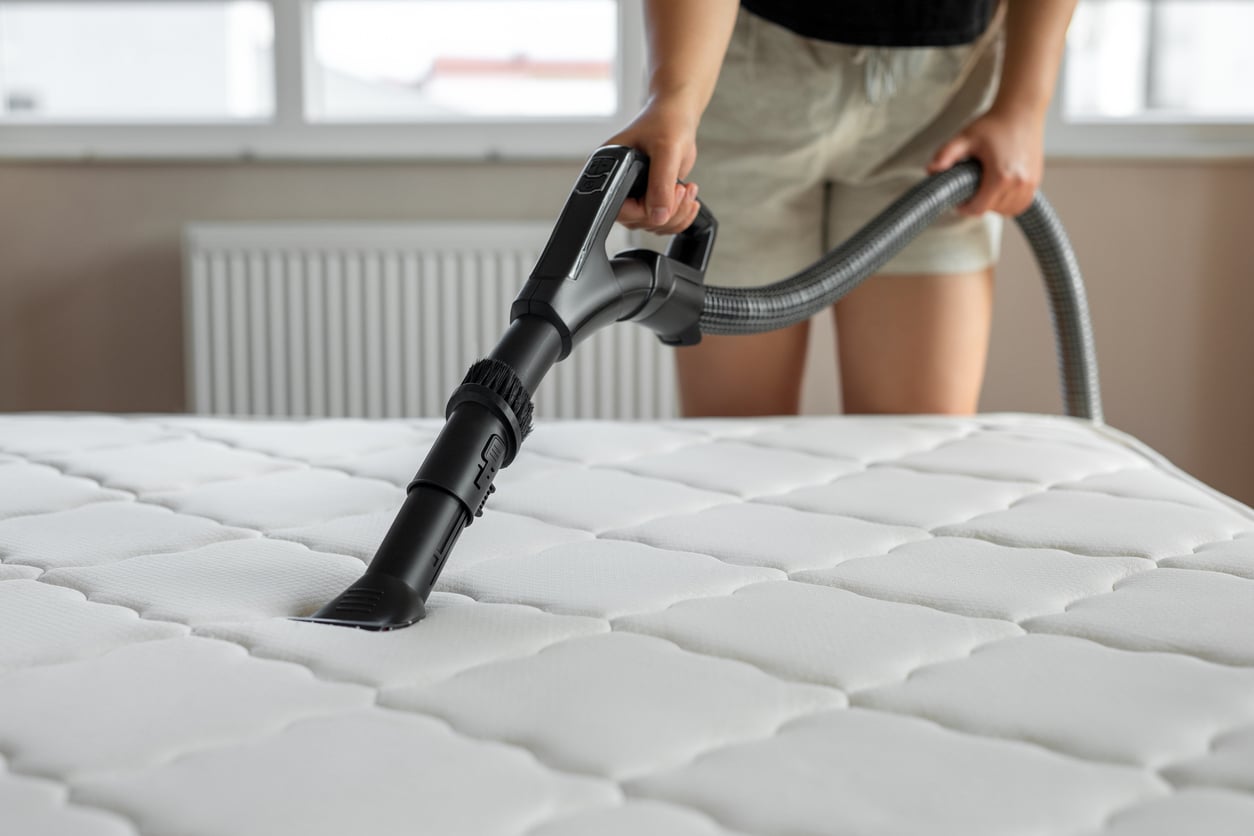More than 100 million people experience allergies in the U.S. and allergies can lead to congestion, sneezing and itchy eyes that disrupt rest. Since the bedroom is where you spend a significant portion of your time, reducing allergens in this space can help improve sleep quality and overall well-being.
Here’s how to allergy-proof your bedroom for a more restful night.
Reduce Bedding Allergens

Your bed can harbor allergens like dust mites, pet dander and pollen, which can trigger allergy symptoms while you sleep.
You can do the following to reduce allergens in your bedding:
- Use hypoallergenic bedding
- Wash sheets, pillowcases and blankets weekly in hot water
- Replace pillows every 1–2 years to prevent allergen buildup
Control Dust and Dander
Dust and pet dander can accumulate quickly in the bedroom, leading to allergy flare-ups. Keeping surfaces clean and reducing clutter can help.
Some cleaning tips include:
- Dust furniture and shelves regularly with a damp cloth.
- Vacuum soft surfaces with a HEPA-filter vacuum.
- Keep pets out of the bedroom to prevent dander buildup.
Improve Air Quality
The air you breathe at night can impact allergy symptoms. Using air purifiers and maintaining proper ventilation can help reduce airborne allergens. Use an air filter and keep windows closed during high pollen seasons. Run a humidifier to prevent mold and dust mite growth.
Reduce Mold and Moisture
Mold thrives in damp environments, and mold exposure can trigger allergy symptoms. It’s helpful to keep humidity levels
To prevent mold growth:
- Fix any leaks or water damage promptly.
- Use exhaust fans in bathrooms, especially if they are attached to the bedroom, to reduce humidity.
- Clean curtains, blinds and windowsills regularly to prevent mold buildup.
Don’t Forget Flooring and Curtains
Carpets and heavy drapes can trap allergens, making symptoms worse. Consider the following when decorating bedrooms.
Some of the best options for allergy sufferers include:
- Opting for hardwood, tile or laminate flooring instead of carpet
- Using washable curtains or blinds instead of fabric drapes
- If you have rugs, wash them frequently or choose low-pile options
Keep Pollen and Outdoor Allergens Out
If you suffer from seasonal allergies, taking steps to prevent pollen from entering your bedroom can help reduce symptoms.
- Change clothes and shower before getting into bed after spending time in parks like Memorial Park.
- Keep laundry off the bed if it has been drying outdoors.
- Remove shoes before entering the bedroom to avoid tracking in pollen.
Creating an allergy-proof bedroom can lead to better sleep and improved overall health. By reducing allergens in your sleeping space, you can breathe easier and wake up feeling more refreshed. If allergy symptoms persist despite these changes, contact Carolina Pines ENT for a consultation today.
